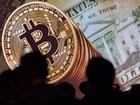The European Union will sign a deal to remove virtually all customs duties on trade with Vietnam on Sunday, the EU Commission announced.
 Full Story
Full Story
Coca-Cola and Chinese dairy firm Mengniu have signed a deal to become joint sponsors of the Olympic Games from 2021 to 2032, IOC chief Thomas Bach announced Monday.
 Full Story
Full Story
Bitcoin surged to a near 16-month high above $11,000 Monday, overshadowing showings across stock, foreign exchange and commodity markets, with investors looking ahead to the week's G20 summit.
 Full Story
Full Story
Zimbabwe announced on Monday that it would abandon the use of foreign currencies which replaced the local dollar that was swiped out by hyperinflation ten years ago.
 Full Story
Full Story
The jailed daughter of Uzbekistan's former president, once tipped to succeed her father, says she has given $1.2 billion to the state and asked to be released.
 Full Story
Full Story
The Arab League Sunday reaffirmed a pledge to pay $100 million a month to the Palestinian Authority, a day after Washington unveiled its Middle East peace plan.
 Full Story
Full Story
At least eight people were killed when an oil pipeline exploded in the southeast of Nigeria, police and a local official said Sunday, adding that the death toll could rise.
 Full Story
Full Story
Saudi Arabia on Sunday launched a new special residency scheme aimed at luring wealthy expats as the petro-state seeks to boost non-oil revenue.
 Full Story
Full Story
French supermarket giant Carrefour said Sunday it had agreed to sell 80 percent of its China business to leading Chinese retailer Suning.
 Full Story
Full Story
Southeast Asian leaders gathered in Bangkok on Saturday determined to drive forward the world's largest commercial pact, with the trade war between the US and China clouding the outlook for their export-led economies.
 Full Story
Full Story



